Gone Home Interview: Steve Gaynor On Oculus Rift and The Fullbright Company's Next Project
Gone Home designer on making 2013's most talked about indie game
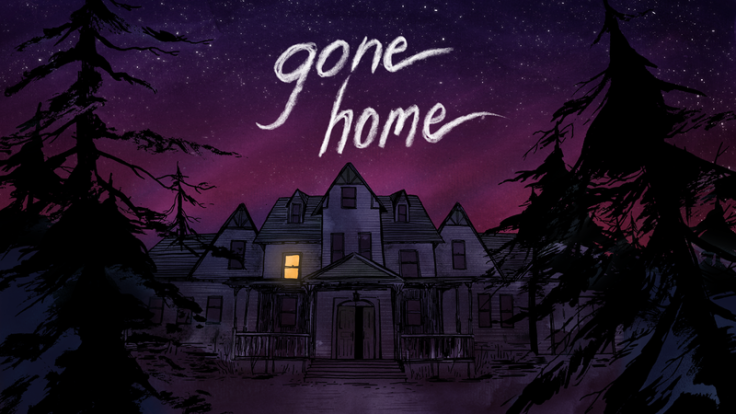
Kaitlin Greenbriar has returned home after a year of globe-trotting adventures abroad. She arrives to discover her house empty, and a note from her sister Samantha telling her not to go looking for answers as to where she is.
Gone Home starts in the dead of night and with a crack of thunder. The player, as Kaitlin, makes their way through an enormous, creepy house, piecing together the story from discarded notes, letters and diaries.
The first game from Oregon's Fullbright Company – founded by Steve Gaynor, Johnnemann Nordhagen and Karla Zimonja – presents players with nothing more than the ability to discover what happened to Sam for themselves, rather than the telling them directly through a cut scene or by setting objectives.
Gaynor and co had previously worked for 2K Games on acclaimed Bioshock 2 DLC Minerva's Den.
Its status as a watershed moment in the world of videogames would have been cemented simply by its mechanics, but the magic of Gone Home is that is uses these new methods to weave a story unlike any other in recent gaming memory.
Following the game's huge success and numerous appearances on and atop game of the year lists across the web, I spoke to Steve Gaynor about what his team learned from making Gone Home, where they hope to see the game's narrative style taken and what's next for The Fullbright Company.
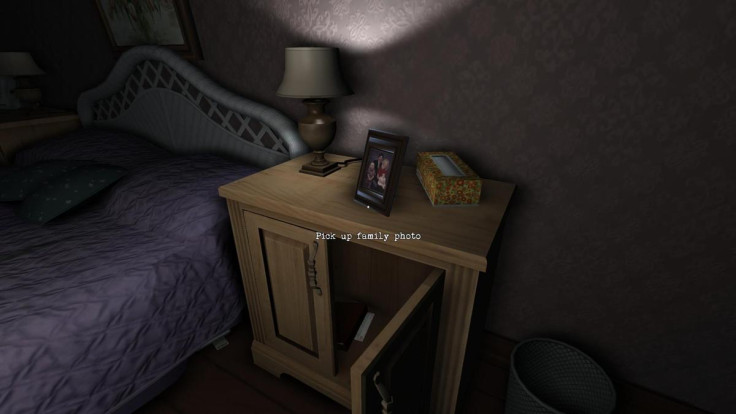
What has it been like seeing the game win such high praise and feature so heavily in Game of the Year lists?
We never pictured that level of reaction. We thought we made a good game, we're happy with it, and that made us think that some people would like it. Seeing Best PC Game on IGN, the Spike VGA awards or on Polygon, we didn't expect the game to go that broad, to have that level of exposure, but it's been really cool to see. It means more people than we thought connected to the game, and we're really enthusiastic about that.
What did you learn about game development and the art of story-telling during the making of the game?
Practically speaking it was really more about applying stuff we had learnt from AAA. We were using the skill-set we had developed making these bigger games and then applying it to something smaller. Obviously we did learn more small scale stuff using the Unity engine and working with the small team and configuration that we had. I think that's probably why the game has gone well, is because we were using this experience that we had to make something we were confident in, as opposed to figuring it out as we went along.
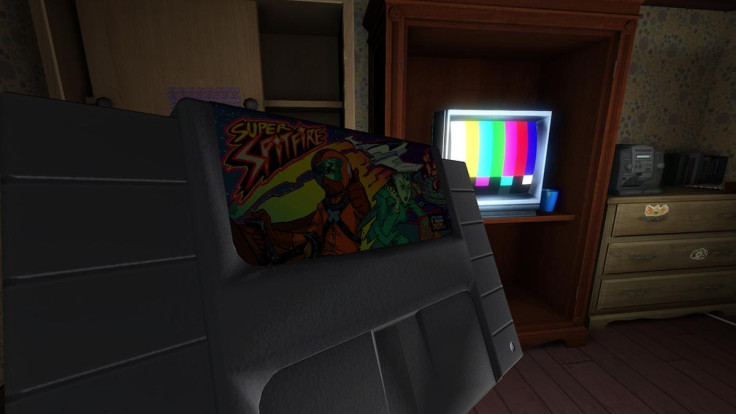
Having decided to set the game in the 1990s, how conscious were you of getting the balance of nostalgia right so it didn't verge on resembling a 90s-kid Buzzfeed article?
It wasn't like 'Oh the 90s were awesome, let's make a 90s game!' We chose the setting for other reasons and then we just had to portray it in a way that felt authentic. There were touch stones, like we put magic eye pictures in there, Nintendo cartridges and stuff. We only wanted to put in as much 90s kitsch stuff as would be appropriate and would get the time period across. I don't think we were ever really in a place where we wondered if we were making this too much like nostalgia porn [laughs].
At what point in the development process did you decide that you wanted to tease the supernatural element that lingers early on in the game?
We started from this point of its going to be a dark and stormy night in an abandoned mansion right, so that implies some things. We also had the idea that they had inherited the house from Sam's dead great uncle. Getting to know the character of Sam, well she's in this situation and she's kind of a goofy kid so she had this curiosity about this great uncle who she never met, who died in the house, and expressed that through Ouija boards and ghost-hunting. So that's really where it came from, but we also wanted to play up the tense atmosphere at the beginning to get you full into the game.
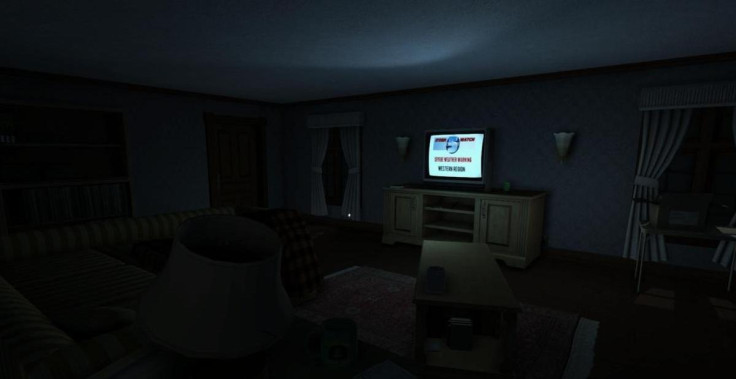
What's your take on the accusation levelled at you from some quarters that Gone Home "isn't a real game"?
We don't really take it heart. We saw so many more positive reactions from people who played the game and who had a strong connection with it, who emailed us and told us about the personal experience they had playing. That stuff is so much more valuable than somebody who is basically trying to be dismissive. I think if you come into the game with a certain set of expectations and you're not drawn in by what we do then it's like 'Alright, if it's not for you it's not for you'.
The reason in part that we've had this reaction from a pretty vocal group is because we have had a really positive critical response from mainstream outlets. So I think there are a certain group of players who are like 'Gone Home doesn't fit into my expectations for the kind of game that should be getting these kinds of scores'.
It's because the editors and the editorial staff at those places had a really strong connection with the game, but it does fall outside of the realm of... well, game of the year usually goes to something like Grand Theft Auto V, and there are great things about those games - I think The Last of Us was probably my favourite game of last year - but I think when something falls outside that traditional realm of game-making it gets a backlash, but we don't take it personally.
What's your opinion of similar games similar to Gone Home, like Dear Esther and The Stanley Parable?
Dear Esther came out early in the development of Gone Home and the mod was out long before that. The success of that game was definitely encouraging for us. We like that game very much, but what I wanted from Dear Esther was for it to be more interactive, like you walk and see cool stuff and hear the audio diaries, I was like 'Man, I wish I was clicking on stuff to get these audio diaries' and then we made Gone Home! [laughs]
It was an inspiration among many, including games we worked on ourselves, then there's The Stanley Parable which did great – tons of people bought it and there was a really enthusiastic fan response. The writing and the execution of the story stuff is really clever.
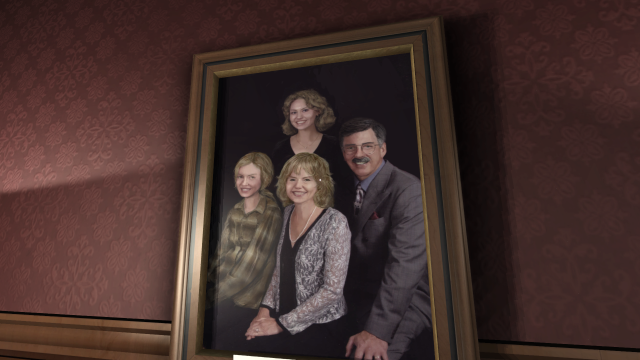
Will you be taking the core story-telling methods of Gone Home forward into your next project?
In some form. We want to take what we made with Gone Home and expand it, and explore from that experience as a starting point. The other side of it though is that we don't want to do something that's just more of the same game any more than fans would want to play that. It's a balance, how can we take the next step from where we started but also not just go off into uncharted territory, and still make something that we're really excited about and the players are excited about? That's what we'll be trying to figure out with our next game.
How far into the process of making your next game, do you have a rough idea of what it might be?
We're still in the talking about it phase, we have ideas, we think we have some pretty solid directions to head in, but we're not looking to actually start digging back into the editor and putting a videogame in a computer too soon. There's a bunch of stuff that we're still dealing with following the release of Gone Home that keeps us busy and also we don't want to just dive back into the next thing too soon. If you don't have some down time, and some distance, you run that risk of making something completely in terms of the last thing that you made. Later this year, we're actually going to start putting stuff on screen.
When a game such as yours offers up something new, people will inevitably emulate it. Are you excited to see what developers can do with the ideas presented in Gone Home?
I'm excited by how many different kinds of explorations of this non-violent first person game there have been in just a couple of years. We've seen Dear Esther, Amnesia, Proteus, Antichamber, The Stanley Parable, Thirty Flights of Loving and Jonathan Blow is working on The Witness, then there's Gone Home in the middle of all that. It goes to show that there's this zeitgeist of people saying the first person perspective is really interesting, you can do so many things with it. If you take out the combat, what goes in its place? It's an exciting time for this kind of game.
I hope all these games encourage developers to feel like they have the ability to explore new territory. I would love to see a game that's inspired – at least in part – by what we did with Gone Home. We did one thing with it, took it only so far and we're proud of it, but seeing what other people do synthesising what we've done with their own ideas and approaches is really exciting.
Do you think bigger budgets and senses of scale would clash with the story-telling methods of Gone Home?
I don't know whether if you took Gone Home and made it eight or ten hours if the limitations of the gameplay would overstay their welcome. I don't know if pure exploration, story-finding and opening secret doors – as the only things you do in the game - could sustain an epic experience, but it hasn't been tried before.
We're seeing some stuff that's at least implying it will be like that on a larger scale, like Alien: Isolation, the trailer for which showed no combat. It basically looked like Amnesia but with Xenomorphs. If that can sustain a triple A scale then that's really cool, but we felt like the mechanics and what you do as the player from our end was more suited to a focused, self-contained kind of experience.
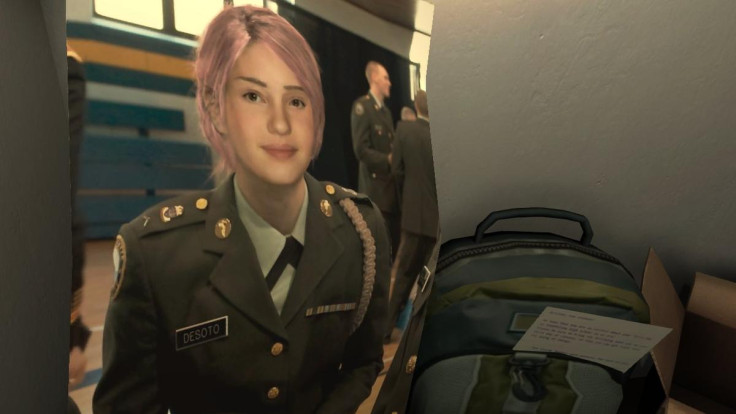
Many people would have played Gone Home and unknowingly missed certain details. While your game wasn't criticised for this, Bioshock Infinite was criticised for putting too much plot detail into its audio logs, which meant some players were left with questions at the game's end that could have been answered.
How much of an obligation do you think developers have to give gamers all the detail?
For us it was really important to leave a bunch of stuff completely up to whether the player finds it or not. I think it's a prioritisation thing right? The core of Gone Home's story is about Sam and Lonnie, and it was told through Sam's audio diaries, which were the heart of understanding that plot. But that was only one plot of the game. We did our best to say if you get most of the audio diaries you'll understand most of the story, and we'll make it easy to find them.
Then there's stuff that is off the beaten path and hidden behind stuff. I think that was the complaint with Bioshock Infinite, that there was stuff which was core to a basic understanding of what was going on in the plot that you could miss more easily than people were comfortable with. It's a balance. In Gone Home we've had people say they went into the attic and missed the audio diary up there and just went to the end, and I was like 'Woah, that's a strange ending'.
When you're making a game that doesn't force the play to engage with every point of the narrative you have to be conscious of the fact that somebody might miss something, and it's up to you as a designer to make sure that the stuff that's most important not to miss is the easiest to find.
Finally, any update on possible console or Oculus Rift versions of the game?
We are actively investigating getting it onto consoles, and we think it would be a great fit. I mean we designed the game to use an Xbox controller and to be playable on the couch. It's really just a question of how we make that happen. So we're looking into it and we hope it will happen but we don't have anything to announce at this point.
Oculus Rift we have basically stopped active development on. We looked into it and what we discovered is that really, for a game to be good on Oculus you have to design it for Oculus in a lot of ways. We don't have any body awareness in our game and a bunch of UI pasted to the screen – 2D UI – and both of those things are tough with an Oculus game and we're not going to go back and remake our UI or add a player body to make a good fit for Oculus, so yeah we don't have any plans to release on Oculus at this point. Who knows what happens with later versions, there's no consumer version yet, it's still in development. When we were at Steam Devs Days and Oculus did a presentation they were basically saying 'Oh your UI needs to be in-world and you should have feet so you can look down' and we were like, no, it's not worth it. We're not going to do that."
Thanks for speaking with us.
No problem, thank you.
Gone Home is out now priced £14.99 on Steam.
© Copyright IBTimes 2025. All rights reserved.






















